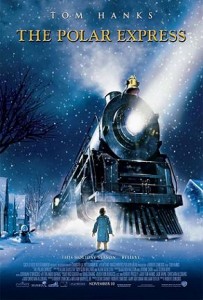Hi everyone!
This week I would like to devote my entry to two things I am passionate about, books and films. The idea of doing it came to my mind when Raquel, as my peer Yolanda mentioned in her last post, introduced us to our next literary project through book-based films. So, let’s start!
Although I can be wrong, among our society exists a commonly shared perspective which tends to see books and films as “enemies”. An unofficial evidence of it could be the statement that all of us have heard, at least once: Oh! Come on! Don’t waste your time with that film, the book is undoubtedly better!. Another confirmation of it was the one provided by Linda Hutcheon (cited by Malgozata Marciniak, 2007) “adaptions were seen by most critics as inferior to the adapted texts, as ‘minor’, ‘subsidiary’, ‘derivative’ or ‘secondary’ products, lacking the symbolic richness of the books and missing their ‘spirit’”(p.1); quite extremist for my taste.
The truth is that this perspective is right to a point, and the reason why I partly agree with the first statement, is due to the fact that books have lots of advantages which films missed, as for example:
- Books can include as many details as the author decide, in other words they do not have time limitation as films.
- Although images are powerful, words are even more. Evocative language has the power to awaken in our imagination thousand of sensations.
- Despite books provide some details about characters, they give us much more freedom to imagine how they look like, as well as they offer time for readers to consider what they would do in the character’s shoes.
- And/Finally whereas visual effects are being improved in films, in books everything is possible already.
However in my opinion both, films and books could be understood much better as allies; each one can be an aid to the other one. By the way, according to Cox and Many (cited by Stoodt, 1996) “children’s response to film and literary narrative are related” (pp. 91-92). In the same line Kulleseid and Strickland (also cited by Stoodt, 1996) explained that the fact of experiencing literature through different media expands their background knowledge, deepens students’ response and strengthens their understanding.
Previously mentioned contributions, can be enough for some people to try to use the great support film adaptations can provide. However, for more reluctant readers other benefits that the use of children’s books film adaptations can have are the following:
- Related with reading motivation, which in words of Guthrie (cited by Hendershot, 2007) “is the strongest evidence for reading comprehension” (p.8)
- “The watching of book-based movies can encourage a child, who might not normally be interested in reading, to become intrigued enough to put forth the extra effort to read the book” (Israel, cited by Hendershot, 2007, p.5).
- Another stimulation provided by films take place when pupils want to check-out a particular book once they know that it is going to appear a film based on that book. (Hendershot, 2007, p.23).
- “This external reinforcement can motivate the reader to have the desire to repeat this enjoyable experience with future books and book-based movies”. Motivation that over time will become intrinsic. (Wigfield, cited by Hendershot, 2007, p.6).
– Related with understanding and contents
- The fact of watching films adaptations of books, can help “struggling readers” to understand better the stories.
- Book based movies “can be very fruitful for further engaging them in the story”: evoke emotions towards characters and engross them in the storyline. They can also be really useful at the time of “developing their critical thinking skills”, for example:
- Considering if the director interpreted a relationship between characters in the same way they did.
- Finding similarities or differences between the structure of the film and the structure of the book after they have analyzed both.
- Comparing the characteristic of the actor/actress that represent the characters, with the ones they imagined while they were reading.
For those who still do not believe the great influence that book-based films can have, one last data: In words of Megan Hendershot (1996) “According to the book-sales figures (…)The Polar Express normally sells approximately 200.000 copies every winter holiday season, but the movie release in November 2004 led to 3.000.000.000.of copies sold during the 2004 holiday season”(p.3).
Thank you for your time! I hope you like it and find it useful ![]()
Stoodt, B. (1996). Children’s Literature. Macmillan Education AU.
Megan R. Hendershot. A Study of the Impact of Children’s Book-based Blockbuster. Movies on Library Circulation. A Master’s paper for the M.S. in L.S. degree. April, 2007. 32 pages. Advisor: Brian W. Sturm.
Marciniak, M. (2007). The appeal of literature-to-film adaptations. Lingua ac Communitas, 17, 59-67.
